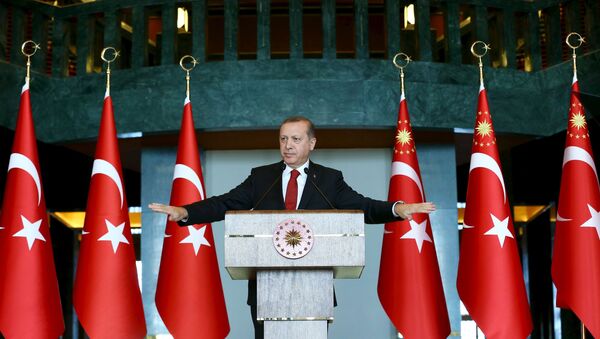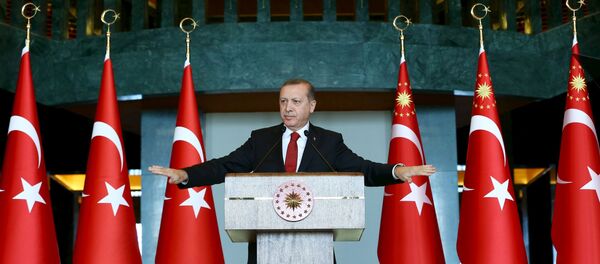Kurdish fighters have proven to be one of the most effective forces fighting terrorist groups in Syria, yet the Turkish government continues to refer to groups like the Kurdish Democratic Union Party (PYD) as terrorists. While Russia has worked steadily to include Kurdish groups in Syrian peace talks, Ankara has refused, and has now called on Washington to choose sides.
"What [Erdogan is] really saying is the United States must take a side both in a new civil war inside of Turkey and in the broader regional context, and ultimately that’s what this is really about. Erdogan has drawn his line separating himself from Russia and he’s demanding that the United States side with him," journalist and analyst Eric Draitser tells Loud & Clear host Brian Becker.
"Unfortunately for Erdogan, he’s painted himself into a corner. He has very few options left for him, and that’s why you see such dangerous and bold rhetoric."
Germany appears to have already chosen its side. On Monday, Chancellor Angela Merkel criticized Russian airstrikes, but failed to address Turkey’s military operations against the Kurds.
"It’s a power game," Elif Sarican of the Kurdish Student Union says. "Russia has been a lot more effective in a very short period of time than the US has been effective in the last few years.
"If Turkey loses power on the border, then therefore, directly…Germany, NATO, and the US, all of these power hoarders lose their influence that they so desperately want to have in Syria."
The United States, on the other hand, is struggling to figure out its ultimate goals in Syria.
"What is the ultimate US strategy in Syria if they’re not able to achieve regime change, which is ultimately what the United States wanted from the very beginning? They wanted to get rid of the Assad government and put in its place a compliant and more pro-Western government…" Draitser says.
"That project has failed."
As Western powers attempt to salvage their reputation in the region, the Kurdish people are struggling to have their voice heard.
"Kurds in the region still do want a united Syria," Sarican says. "They want autonomy in the sense that they want to live the way they’re living right now…They want to be able to govern themselves, but this doesn’t mean completely independent from the state.
"If there is any chance of a solution it will be with the influence of Russia, because completely changing the regime and getting rid of Assad is going to do what it did in places like Libya and Egypt. It’s not going to help the people of the country…"
Long term stability, however, may not be in Turkey’s best interest.
"Turkey has lost its access to a lot of its proxies inside of Syria because of what Russia has done," Draitser says. "It wants to regain that access, and it’s using the crisis with the refugees and Aleppo in order to achieve just that."





